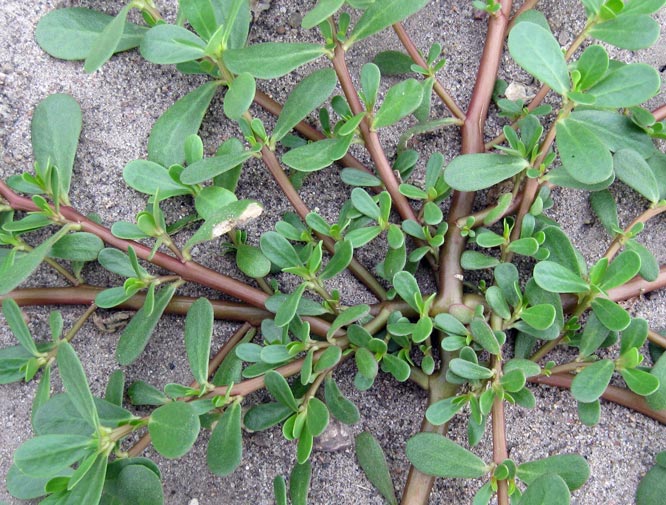
COMMON PURSLANE (Portulaca oleracea) — also known as Munyeroo, Pigweed, duckweed and wild portulaca — is the most frequently reported “weed” species in the world. It can grow anywhere that has at least a two-month growing season.
Purslane was growing in Australia before European settlers arrived. Early explorers observed Indigenous Australians collecting the tiny black seeds to mix with water and cook in hot ashes. The flavour of the seed is much like linseed.
An annual plant and extremely hardy, purslane grows as a thick, mat-like ground cover with succulent stems, often with a red tinge; oval, succulent leaves, 1-3cm long, develop in clusters at stem nodes; small yellow flowers set at the nodes and ends of stems. Seed capsules are small, peaked cones, full of tiny black seeds, the size of fine sand.
Purslane grows just about anywhere from fertile garden soil to the poorest arid soils. A rock driveway is nirvana to purslane. It’s succulent characteristic makes it very drought tolerant. Purslane prefers the fine textured soils of seedbeds as in vegetable gardens or open soil areas in paths.
While many of us regard it as a common useless weed, purslane is actually more useful than you can ever imagine.
Purslane is rich in Omega-3 fatty acids, GMO-free, and contains the highest amount of vitamin A compared to other green leafy vegetables, and it can safeguard you from cancer.
This weed is loaded with essential vitamins and antioxidants, vital for your overall well-being.
Likewise, it contains iron and calcium, which are extremely important for the bones.
It is also very effective when it comes to boosting the immune system.